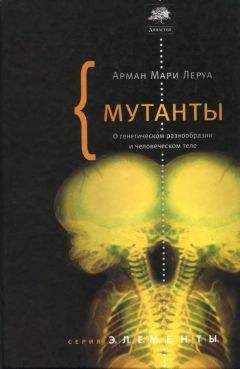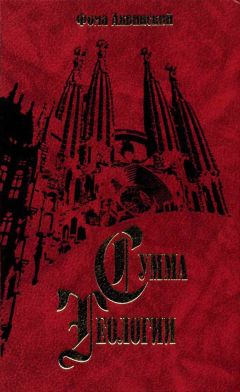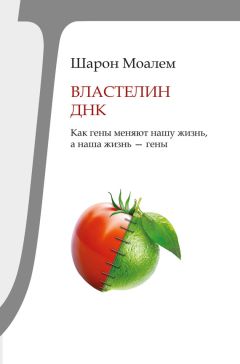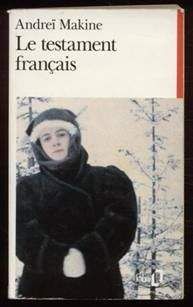Townsend, P. et al. 1992. Inequalities in health. Penguin Books, Harmondsworth, UK
Trotter, M. 1928. Hair growth and shaving. Anatomipal Record 37: 373-379
Tsukui, T. et al. 1999. Multiple left-right asymmetry defects in Shh-/-mutant mice unveil a convergence of the Shh and retinoic acid pathways in the control of Lefty-1. Proceedings of the National Academy of Sciences, USA. 96: 11376-11381
Twitty, V.C. 1966. Of scientists and salamanders. W.H. Freeman and Co., San Francisco
Twitty, V.C. and J.L. Schwind. 1931. The growth of eyes and limbs transplanted heteroplastically between two species of Amblystoma (sic). Journal of Experimental Zoology 59: 61-86
Tyson, E. 1699 (1966). A philological essay concerning the pygmies of the ancients. B. Windle (ed.). David Nutt, London
Unthan, C.H. 1935. The armless fiddler: a pediscript. George Allen & Unwin, London
Valenzano, M. et al. 1999. Sirenomelia. Pathological features, antenatal ultrasonographic clues, and a review of current embryogenic theories. Human Reproductive Update 5: 82-86
Valverde, P. et al. 1995. Variants of the melanocyte stimulating hormone receptor gene are associated with red hair and fair skin in humans. Nature Genetics II: 328-330
Vassart, G. 2000. TSH receptor mutations and diseases Ch. 16a. The Thyroid and Its Diseases:
http://www.thyroidmanager.org
Vieille-Grosjean, I. et al. 1997. Branchial Hox gene expression and human craniofaciall development. Developmental Biology 183: 49-60
Viljoen, D.L. and P. Beighton. 1984. The split-hand and split-foot anomaly in a central African Negro population. American Journal of Medical Genetics 19: 545-552
Viljoen, D.L. and S.H. Kidson. 1990. Mirror-polydactlyly – pathogenesis based on a morphogen gradient theory. American Journal of Medical Genetics 35: 229-235
Voss, J.W. and M.G. Rosenfeld. 1992. Anterior pituitary development. Cell 70: 527-530
Vrolik, W. 1834. Over den aard en oorsprong der cyclopie. Niewe verhandelingen der Eerste Klasse van het Koninklijk Nederland Instituut. 5: 25112
Vrolik, W. 1844-49. Tabulae ad illustrandam embryogenesin hominis et mammalium tarn naturalem quam abnormem. Amsterdam, London
Waaler, H.T. 1984. Height, weight and mortality: the Norwegian experience. Acta Medica Scandinavia Supplement 679: 1-56
Walton, M.T. et al. 1993. Of monsters and prodigies: the interpretation of birth defects in the sixteenth century. American Journal of Medical Genetics 47: 7-13
Watanabe, A. et al. 1998. Epistatic relationship between Waardenburg syndrome genes MITF and PAX3. Nature Genetics 18: 283-286
Weber, G. 1995-99. Lonely islands: the Andamanese. The Andaman Association, Switzerland:
http://andaman.org
Weinstein, B.S. and D. Ciszek. 2002. The reserve-capacity hypothesis: evolutionary origins and modern implications of the trade-off between tumor-suppression and tissue repair: Experimental Gerontology 37: 615-627
Westendorp, R.G.J, and T.B.L. Kirkwood. 1998. Human longevity and the cost of reproductive success. Nature 396: 743-746
Wilkie, A.O. et al. 1995. Apert syndrome results from localized mutations of FGFR2 and is allelic with Crouzon syndrome. Nature Genetics 9: 165-172
Williams, D. 1996. Deformed discourse. The function of the monstrous in medieval thought. University of Exeter Press
Williams, G.C. 1957. Pleiotropy, natural selection, and the evolution of senesence. Evolution II: 398-411
Williams, G.R. 1998. Thyroid hormone action on cartilage and bone: interactions with other hormones at the epiphyseal plate and effects on linear growth. Journal of Endocrinology 157: 391-403
Williamson, S. and R. Nowak. 1998. The truth about women. New Scientist. 159: 34-35
Willier, B.H. and J.M. Oppenheimer. 1964. Foundations of experimental embryology. Prentice-Hall, N.J.
Wilmoth, J.R. et al. 2000a. Demography of longevity: past, present, arid future trends. Experimental Gerontology 35: 1111-1129
Wilmoth, J.R. et al. 2000b. Increase of maximum life-span in Sweden, 1861-1999. Science 289: 2366-2386
Wilmut, I. 2002. Are there any normal cloned animals? Nature Medicine 8: 215-216
Wilmut, I. et al. 1997. Viable offspring derived from fetal and adult mammalian cells. Nature 385: 810-813
Wilson, D. 1993. Signs and portents: monstrous births from the Middle Ages to the Enlightenment. Routledge, London
Wilson, J.D. and C. Roehrborn. 1999. Long term consequences of castration in men: lessons from the Skoptzy and the Eunchs of the Chinese and Ottoman Courts. Journal of Clinical Endocrinology and Metabolism 84: 4324-4331
Winter, R.M. 1996. What's in a face? Nature Genetics 12: 124-129
Winter, R.M. and D. Donnai. 1989. A possible human homologue for the mouse mutant disorganisation. Journal of Medical Genetics 26: 417-420
Wittkower, R. 1942. Marvels of the East. Journal of the Warburg and Courtauld Institutes 5: 159-197
Wolpert, L. 1971. Positional information and pattern formation. Developmental Biology 6: 183-224
Woolf, C.M. and F.C. Dukepoo. 1969. Hopi Indians, inbreeding, and albinism. Science 164: 30-37
Worden, G. 2002. Mutter Museum. Blast Books, N.Y.
Wright, S. 1935. A mutation of the guinea-pig, tending to restore the pentadactyl foot when heterozygous, producing a monstrosity when heterozygous. Genetics 20: 84-107
Wu, W. et al. 1998. Mutations in prop-1 cause familial combined pituitary hormone deficiency. Nature Genetics 18: 147-149
Yang, A. et al. 1999. рбзis essential for regenerative proliferation in limb, craniofacial and epithelial development. Nature 398: 714-718
Yang, Y. et al.1997. Relationship between dose, distance and time in sonic hedgehog mediated regulation of anteroposterior polarity in the chick limb. Development 124: 4393-4404
Yu, C.E. et al. 1989. Positional cloning of the Werner's syndrome gene. Science 272: 258-262
Yule, H. 1858. A narrative of the mission sent by the Governor-General of India to the court of Ava in 1855. Bell, N.Y.
Zeikany, J. et al. 1997. Regulation of number and size of digits by posterior Hox genes: A dose dependent mechanism with potential evolutionary implications. Proceeding of the National Academy of Sciences, USA 94: 1395-13700
Zapperi. R. 1995. Ein Haarmensch auf einem Gamalde von Agostino Carracci. in Hagner, M. (ed.) Der falsche Korper: Bietriige zu einer Geschichte der Monstrositaten. Wallstein, Gottingen
Zekraoui, L. et al. 1997. High frequency of the apolipoprotein ε4 allele in African pygmies and most of the African populations in sub-Saharan Africa. Human Biology 69: 575-581
Zeng, X. et al. 2001. A freely diffusible form of sonic hedgehog mediates long-range signalling. Nature 411: 716-720
Zguricas, J. et al. 1999. Clinical and genetics studies on 12 preaxial polydactlyly families and refinement of the localization of the gene responsible to a1.9 cM region on chromosome 7q35. Journal of Medical Genetics 36: 32-40
Zhou, X.-P. et al. 2000. Germline and germline mosaic PTEN mutations associated with a Proteus-like syndrome of hemihypertrophy, lowerlimb asymmetry, arteriovenous malformations and lipomatosis. Human Molecular Genetics 19: 765-768
Zhou, X.-P. et al. 2001. Association of germline mutation in the PTEN tumor suppressor gene and Proteus and Proteus-like syndromes. Lancet 358: 210-211
Zimmerman, L.B. et al. 1996. The Spemann organizer signal noggin binds and inactivates Bone morphogenetic protein-4. Cell 86: 599-606
Zou, H. and L. Niswander. 1996. Requirement for BMP signalling in interdigital apoptosis and scale formation. Science 272: 738-741
Литература по клинической генетике и генетике развития огромна и постоянно увеличивается. Тем не менее я попытался дать сводку тех источников, где можно найти основные результаты или, в некоторых случаях, более подробные детали по каким-либо конкретным вопросам. Помимо этих комментариев самым важным источником информации для тех, кто хочет больше узнать о конкретных генетических нарушениях, может стать база данных в режиме он-лайн "Менделевское наследование у человека" ("Mendelian Inheritance in Man" – MIM), авторами и редакторами которой являются Виктор Маккьюсик (Victor A. McKusick) и его коллеги из Университета Джонса Хопкинса в Балтиморе и которая создана при поддержке Национального центра биотехнологической информации, США (National Center for Biotechnology Information, USA). В ней содержатся постоянно обновляемые описания каждого расстройства, перечисляются вызывающие их мутации, приводится соответствующая генетическая литература. Все это можно найти на сайте:
http://www.ncbi.nlm.nih.gov/omim.
Для желающих погрузиться в эту сложную литературу я указываю в скобках для каждого синдрома и гена номера, приводимые в этой базе данных. Они выделены жирным шрифтом, например: ахондроплазия (100800) вызывается мутацией FGFR3 (134934). Ни база данных, ни эта книга не должны использоваться для самодиагностики.
О монстре из Равенны писали многие. См. у Ландуччи (Landucci, 1542; 1927) стр. 249-250 описание глазами современника. Жан Сеар (Jean Ceard) обсуждает эволюцию монстра в издании Паре "О монстрах" (Pare, 1573, 1971), стр. 153-155; Никколи (Niccoli, 1990) пишет о его политическом значении; см. также Fischer, 1991, p. 54-56; Daston and Park, 1998, p. 177-182. Я полагаю, что у монстра был синдром Робертса (268300), но другие ученые (Walton et al., 1993; Martinez-Frias, 1993) считают, что это была циклопия, сиреномелия и даже гидроцефалия. Все это не более чем догадки, и тот диагноз, который вы выберете, зависит прежде всего от описания монстра, которым вы воспользуетесь, и от того, какие из множества странных его черт вам покажутся более реальными. — прим. авт.
Своим описанием ренессансной тератологии я обязан двум работам (Park and Daston, 1981; Daston and Park, 1998), хотя, возможно, моя интерпретация более либеральна. См. у Боэстюо (Boaistuau, 1560, 2000) воспроизведение исключительно прекрасного тератологического манускрипта того времени, у Меланхтона и Лютера (Melanchton and Luther, 1523, 1823) описание полумонаха-полутеленка, у Паре (Pare, 1573, 1971, p. 3-4) список причин, вызывающих уродства. Взгляды ученых XIX века на влияние материнских впечатлений на развитие плода приводятся в работах: Gould and Pyle, 1897, Bondeson, 1997, p. 144-169. О тератологах XVII века см. у Альдрованди (Aldrovandi, 1642). — прим. авт.
Первое издание Лицети (Liceti) "О происхождении, природе и разновидностях уродов" было опубликовано в 1616 году, но я работал со вторым изданием (1634), краткое содержание и французский перевод которого см. Houssay, 1937. Сжатое описание жизни и трудов Лицети см. Bates, 2001. — прим. авт.





